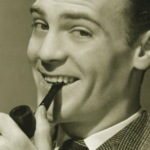
The Unbearable Smugness of “I Got Mine-ism” Amongst Cult and ex-Cult Members
April 6, 2018
Don’t Interrupt the Trauma Survivor As They Pick Up the Pieces of That Mirror
April 12, 2018I had another in the series of revelatory conversations with my colleague Theodora Wildcroft the other day that have helped me at least begin to see why we don’t listen to trauma survivors. We don’t listen, ironically, even when we say we’re trying to listen to them. Even when we write articles about systemic harassment and enabling, when we host panels on the subject, when we write the think-pieces.
“We are contagious,” Theo said, “and those we speak to will suffer vicarious trauma. I can’t speak my truth without hurting other people.”
I’m slowly starting to get it. The person who has disclosed their trauma is a social liability. They have put their dirty laundry on the line. It might look an awful lot like our own. What they have to report about what happened to them, sometimes in full view of their community, shames that entire community. The denial is the clue. Those who are able to get past the simple denial phase must ask whether they were dissociative or complicit, or both. The trauma survivor announces, for the collective: “No, we are not okay.” Many who hear them must plug their ears and pretend that they aren’t there.
For me this is another step in making sense of not only why abuses in certain yoga lineages went on for decades, but why, when the victims are finally able to speak and given the space and support, they are still shut out.
It makes me understand why Anneke Lucas‘ first publication of her experience with Jois in 2010 got a grand total of 4 likes and 3 comments.
Over past weeks, I’ve read two mainstream news articles about the yoga world and #metoo. I heard of a panel on the issues. I read a blog in which a long-term devotee asks an anonymous discloser to contact her by email so that they can learn more about the details of the disclosure — as if it’s all so mysterious. The living and breathing victim’s voice was not invited into any of these spaces.
What I’m learning in my own process, with a lot of help, is to reverse the habits I have and have inherited that centre my perspective instead of the voices of victims. The centring is driven by privilege, but perhaps also by shame. The problem-solving mindset can be earnest and well-meaning, but it also is defensive; it wants to keep the wounded voice out there, howling in the forest. Then we can write articles about what we should do about the strange howling in the forest.
The irony is that people like Karen Rain are telling us exactly what to do. So why isn’t she on every panel, in every article? No-one can say she hasn’t made herself available. In fact, she’s dangerously available for comment. It’s really hard to hear what she and others have to say. It resonates too close to the bone of our own memory, or it violates the visions of general goodness that we’ve come to cherish. It shows us more clearly the differences in our experience, and how much more challenging love is than what we thought.
It’s really hard for another reason that Anneke Lucas told me about and that I’m slowly starting to get: “Sometimes we can’t acknowledge the trauma of others,” she said, “until we acknowledge the ways in which we ourselves have been traumatized.”
Which brings us back to contagion: the fear of what Wildcroft and others call “vicarious trauma”. Really listening is crucially hard, because it demands being impacted, sharing in disgust in such a way that it flips into empathy, into being-with, into saying “I do have room for what you are saying. You do have room here. I don’t need to centre my ideas or my experience, or my hopes, or disguise my shame with intelligence. I’ll let you lead.”
It would seem that overcoming the fear of contagion would be central to all kinds of justice efforts, but others will know more about that than me. Especially about “vicarious resilience“, which I’d like to learn about next.
___
ADDENDUM:
After I posted this to Facebook, Theodora Wildcroft shared it with the following lede:
I speak on behalf of sisters and brothers who hold the dirtiest secrets of our sanghas because you are not ready to hear them speak in their own voices. I can do this because the communities that birthed me still cannot bear to hear me speak their shame either.
As much as you think you know about me, you have not begun to hear my story. Even with my deepest confidants I parcel it out, like careful medicine, in homeopathic doses.
Shall I tell you of decisions I made at ten years old, to submit and save my brother from the worst of it? Shall I describe what a dissociative fugue feels like? Or the dozen different ways I know to escape one? There is so much more. So much more hope and resilience than you can imagine.
I have learnt to pass for small, and quiet, and polite, to smile and deflect and make jokes about it. I have learnt to judge how much you are ready to hear.
Because to know all my story at once would render you sleepless, weeping, incoherent with rage.
Given that strength, what could we be, what would we change, if you could truly hear us? Worlds would shake and empires fall. You truly have no idea what we are capable of.